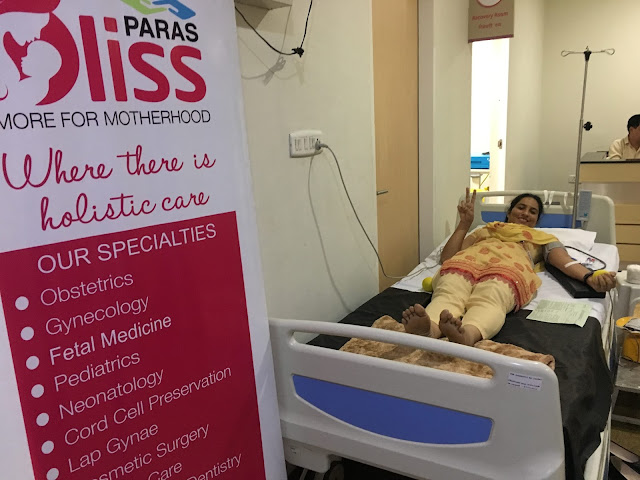Fetal medicine is a newly emerging discipline of medicine, key to diagnosing and treating disease in unborn babies
Panchkula, February 7, 2017: Having a 6-year-old son with a rare genetic abnormality, Radhika (name changed) was gravely worried when she became pregnant again. Her concern centred around the possibility of her second child inheriting the same genetic abnormality; and her need to ensure that this doesn’t happen brought her to Paras Bliss Hospital, Panchkula.

At Paras Bliss Hospital, Panchkula, the new emerging specialty of Fetal medicine and genetic counselling came to her aid. Fetal Medicine is a branch of medicine that deals with the assessment of fetal growth and wellbeing. It also includes the maintenance of fetal health and the diagnosis of fetal illnesses and abnormalities.
Radhika’s son Dev significantly lagged mental development and also started having seizures especially on sun exposure. On thorough investigation, his condition was attributed to a rare genetic abnormality called 5p duplication and 9p deletion. These rare genetic changes can be de novo (newly appearing) or a familial mutation and carried a minor risk of recurrence.
Radhika was understandably worried and wanted to assure that her unborn baby does not inherit a similar genetic condition.All the more because she had miscarried thrice, and this seemed to be her last chance of expecting an uneventful pregnancy.
“To confirm that the baby in the womb did not have the same genetic disease as her son, we offered her a diagnostic needle test (Chorionic villus sampling ) at 3 months (12 weeks gestation) pregnancy and sent the placental biopsy sample for genetic analysis (Microarray). The reasons for carrying out this test so early were one, the legal limit of termination in India in case of any abnormality is 20 weeks and two, the turnaround time of test results is approx 3-5 weeks,” explains Dr. Nupur Shah, Consultant Fetal Medicine, Paras Bliss Hospital, Panchakula.
The results of the test were very reassuring for the parents as they showed that the unborn child did not have the genetic disease as his older sibling and neither did he have any commonly known chromosomal defects. The structural survey of the unborn baby, commonly known as Anomaly scan or Level 2 scan performed at 19 weeks was also normal.
Much relieved at the findings, Radhika went on to have a healthy and uneventfully pregnancy which culminated in the delivery of a healthy baby boy. The mother and baby are doing well. The baby has achieved all normal mental milestones so far.
“With all the miracles medicine has created so far, Fetal Medicine comes as a promise to diagnose and treat most of the health problems of unborn babies. It is a very promising specialty and in the near future more and more expecting parents will use the facility of genetic counselling and fetal medicine to ensure they deliver healthy babies. In case of Radhika, our objective was to check if her second son also carried the genetic abnormality and try to offer her a viable solution and informed choice,” says Dr. Nupur Shah, Consultant Fetal Medicine, Paras Bliss Hospital, Panchakula.
This case underscores the need of Fetal medicine specialists in understanding, counselling and diagnosing the health issues of the unborn in an endeavour to bring a healthy next generation.
At Paras Bliss Hospital, Panchkula, we also advocate couples to undergo pre-conception counselling and testing so that they are aware of the possibilities of genetic abnormalities or defects that can pass on to their children and make informed choices. In many cases, medical intervention before conception can also help parents conceive normally and have healthy pregnancies.


































